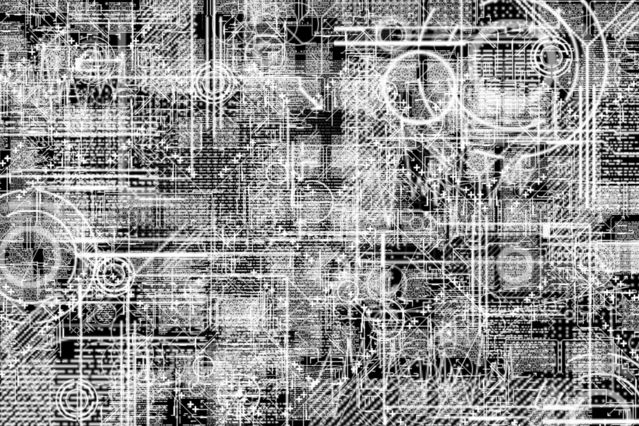
Anxiety
The People Who Have Never Been Lost
Digital natives may have gaps that literature can ease.
Posted February 16, 2019
We now live in a society in which, for the technology-enhanced majority, it has become nearly impossible to get lost, thanks to GPS and ubiquitous surveillance. We all carry tracking devices around in our pockets, linked to satellite technology originally developed for Cold War spying. This ever-present surveillance goes far beyond what George Orwell could have ever imagined, and to think that we deliberately allow ourselves to be tracked, even paying for the privilege. Some annoying features of the pre-internet age have been eliminated: stopping at a gas station to ask for directions, those front seat arguments in the station wagon, but, also, crucially, the wandering through unfamiliar parts of town, the aimless Sunday drives, popping into a random antique store.
My point here is not to nostalgically lament the passing of a bygone age or to indulge in tinfoil hat survivalism. There are dead spots in our global communications grid, and it is occasionally possible to catch a glimpse of stars in the night sky if you get out beyond suburban light pollution. But this is a distant possibility for most people, who live increasingly in urban areas, very much on the grid twenty-four hours a day. Even a ten-minute internet outage feels like an annoyance, possibly even an emergency.

For the purposes of this blog on the boundary between psychology and philosophy, I wonder about the impacts of this gridthink society. I am defining gridthink here as the inability to live in an unaugmented manner, as the atrophy of the unaided sensorium of sight, sound, hearing, taste, and touch, combined with the diminishing actualization of imagination and intuition. I want to resist romantic impulses here, to say that gridthink is not necessarily good or bad, but also to say that it would be naive to think that ubiquitous digital technology would not have an impact on human consciousness as we co-evolve with technology. As much as I love dystopian fiction, I do not think we are going to return to living in hunter-gatherer bands in the wreckage of industrial civilization. I predict that gridthink will win, for better or worse, so we have to begin to think about what that will mean for ourselves and for future generations, as we no longer have to struggle with basic things like navigation and even lose some problem-solving abilities due to to outsourcing such functions to artificial intelligence.
One of the prevailing psychological archetypes or metaphors is that of the winding path, the unknown road receding into the distance. We use the winding path as a metaphor for the life journey, for the emerging self that comes into being in the interface between the known present and the unknown future. The winding path is our primary metaphor for thinking about the stages of life and for navigating through major life events like divorce, recovery, loss, etc. If we no longer have a point of reference for this archetype or metaphor, it becomes more difficult to cope with an uncertain future. Digitally enhanced humans already know what the path ahead holds. They have little to no experience with being lost. They have not had to solve problems that cannot be googled. I am flagging here a disconnect between the illusion that the devices in our pockets are little answer-producing machines and the reality of the impact of the disruptions to come.
I think that gridthink will win, in fact has already won to a large degree, but this does not mean that the future will unfold smoothly. Ecological despair will begin to be a pervasive feature of everyday life. Even more extreme concentrations of wealth will make societies more dysfunctional. All of this will have a negative impact on politics, which will become even more incapable of addressing the problems that ordinary people face. The people who have never been lost will suddenly have to deal with the largest problems that humanity has ever faced. This generation, now perhaps more than a generation, of digital natives will have few philosophical or psychological resources for naming the sense of anomie and anxiety that emerges. They will look for technological solutions for problems that don’t have technological solutions. They won’t be able to tech their way out of despair, and this will lead to outbreaks of panic, a panic which will be under-theorized due to our uncritical attitude towards technology. Society will realize too late that the arts, literature, philosophy, religion, and poetry held hidden resources that might have been used to stave off the sense of despair that will soon become all too real.
We have to begin to think about our responsibility, as people who may be in caring professions and may still remember non-digital life, to provide the next generation with resources that they can use to get through the collapse to come. When I say “collapse,” I mean a sort of zombie collapse, in which industrial civilization dies, in a sense, but manages to keep on going in spite of itself. I am thinking that Marge Piercy’s He, She, and It may have the future right, that ecological collapse happens but society still keeps on going. At this point, some Shakespeare, T. S. Eliot, or Octavia Butler may be more useful than a new iphone app. I am thinking also of Plato, Not Prozac!, the book by Lou Marinoff that launched the philosophical counseling movement. The most important resources may be those of developing imagination and empathy rather than relying on technical skills alone. We need to develop in our children, our students, and our clients the capability to engage in sustained reflection, to imagine other worlds, to view the world from another’s point of view. These are the really valuable skills, the emotional intelligence that we are neglecting through STEM-focused education. Before you send me a diatribe about how STEM does enhance imagination, I am not suggesting that we can abandon computer literacy--far from it. I am only saying that we should not abandon older ways of knowing in the quest for bright shiny objects.
The human condition is changing. It is merging with machines and extra-human biology in important ways that will reshape the future decisively. But we still need to reflect on the old themes of our place in the cosmos, the exact nature of our responsibility, and the way to cultivate meaning in life. If we fail to engage with these big questions, we will leave our children at the mercy of an insecure world, without even the imaginative muscles necessary to name what they face. We can allow our children to get lost in literature, and, in that way, they develop the imagination and empathy that they will need to get them through epochal changes. I am undoubtedly speaking like a typical humanities nerd here, but I do believe that resilience cannot be developed through technology alone. Or rather, we also need to rely on a more ancient technology, the written word, which opens new possibilities previously uncontemplated.

